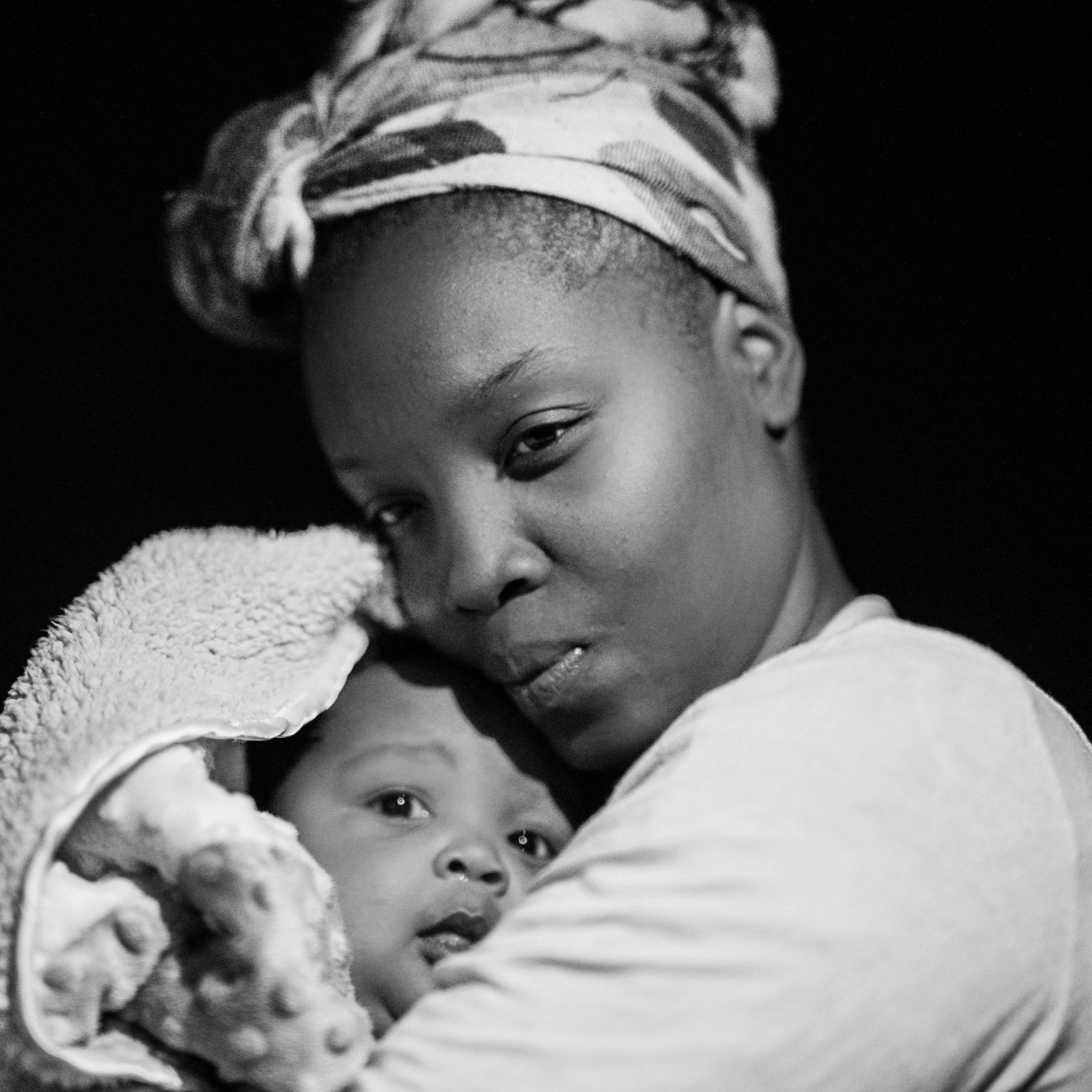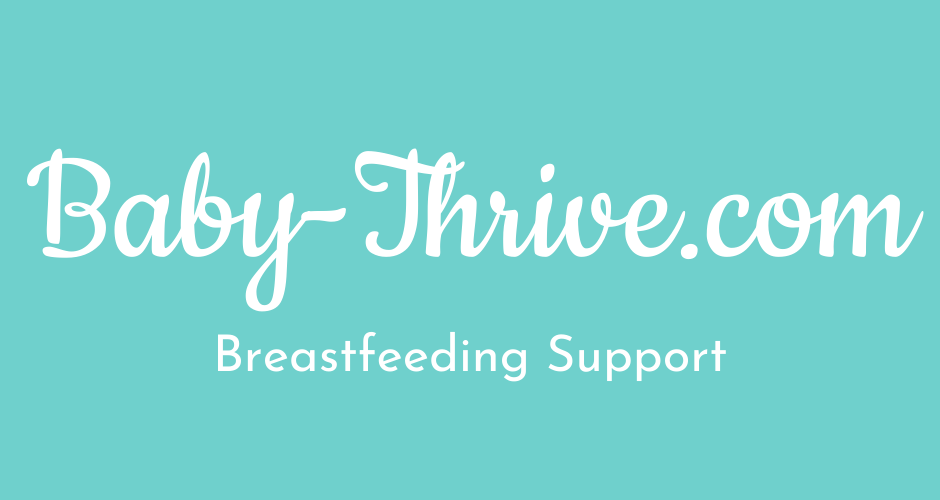Welcome to the Baby-Thrive
Blog

Stopping breastfeeding
If you decide to stop breastfeeding altogether:
How to stop;
Phasing out breastfeeding gently will give you both time to get used to the idea.
Stopping gradually will also help protect against common problems like mastitis and low mood.
You'll probably find it easiest to drop 1 feed at a time. It does not matter which feed you drop first, so it will usually be a case of how it fits in with your life. If your baby is under 1yr you replace that feed with a bottle of formula or freezer stash or donor milk.
If your baby is over a year you can try offering water in a sippy cup and providing lots of nutrient-dense foods like avocado, sweet potato, egg yolk, salmon (& fluid rich foods such as watermelon, tomato, cucumber if they are not keen on water).
If you are wanting to stop swiftly the NHS suggest dropping a feed each 3+ days while watching for any signs of engorgement & checking your baby’s mood and nappies.
Of course you can also stop breastfeeding slowly…just gradually offer less breastfeeding or pump for shorter periods and over time your breastmilk supply will likely slow down.
Quotes;
You are everything your baby needs
Every drop of milk you gave to your baby is valued

Mastitis treatment
Learn the latest 2022 guidelines for treating mastitis without antibiotics. Discover effective home treatments like ice, ibuprofen, massage, and ultrasound therapy. Find out how sunflower lecithin can help prevent recurrence and support healthy breastfeeding.

Sleepy babies
Are you concerned that your baby is sleeping so much they are not feeding enough? You are here: Home / Breastfeeding information / Sleepy Baby – Why And What To Do
Nobody likes to disturb a sleeping baby, but sometimes a baby can be too sleepy for their own good. At times like this they may need you to take action.
Your newborn baby needs to nurse actively for one or both breast at each feed. Offer the second breast after they seem to have finished at the first, although they may not want both sides at every feed.

Blisters/Blebs on nipples - Why do they happen & how to treat them.
What is the little blister/pimple on my nipple?
Do you have a pinprick pain on your nipple? If you look closely is there a pimple-like waxy plug blocking a nipple pore?
This could be a “Bleb” or “Milkspot” or “Nipple blister”.

6 tips for improved baby sleep
Before I was at Lactation Consultant, and before I was a mother, I was a nanny for 20 years working in London, Sussex, Australia and America. I looked after lots of babies from newborn and especially during their first year or two.
It's really common that new parents ask me about baby sleep, and baby sleep & feeding seem to be intertwined.

What might a routine look like at 6 months old?
Before I was at Lactation Consultant, and before I was a mother, I was a nanny for 20 years. I looked after lots of babies from newborn and especially during their first year or two. In my experience, after babies are six months old, I feel it is easier to gently manipulate them into a routine. Maybe it's developmental, babies, this age do seem to start having more predictable habits.
It's really common that new parents ask me what kind of sleep routine babies should have. Much time and energy can be spent trying to enforce a routine on babies before six months and I don't personally find it helpful. It can even be a source of stress and feel rather counter-productive.

Dummies & Pacifiers for breastfed babies.
A few notes on dummies…not should you or should you not!
Do dummies interfere with breastfeeding?
How soon can you give a breastfed baby a pacifier?
Which dummy is best for a breastfed baby?

Balancing Breastfeeding and Bottle-Feeding: The One Bottle a Day Approach
Sharing the work (and experience) of feeding - how to pump a bottle a day for someone else to give

Is it ok to drink alcohol when breastfeeding?

Why is it ideal to breastfeed exclusively?
The simple answer is that before around six months your baby’s gut is not sealed, particles from formula and other products can pass easily from the baby’s gut into the body where they can affect short and long term health.

Breastfed baby policies for nursery/childcare in the UK
Breastfeeding baby policies are typically for formal childcare such as a daycare or nursery settings.
They're more common in America, I guess because maternity leave is normally shorter and breastfeeding rates are higher.

Alternatives to bottles for breastfed babies
A quick fly-by tour of syringes, feeding tubes, cups and other equipment for giving a top up feed to a baby whilst protecting the breastfeeding journey.

What’s the best Breastfeeding Pillow? How do you use one? Do you need one?
Which is the best breastfeeding pillow? How to use a breastfeeding pillow? Do you need a breastfeeding pillow?
Is a breastfeeding pillow worth it?

Shallow latch can cause painful breastfeeding and shaped nipples-how do you fix it?
Sometimes breaking the seal and taking baby off is necessary (if there is a lot of pain you might be damaging your nipples and your breastfeeding relationship).
But taking babies off and trying to re-latch can sometimes just get everyone stressed and babies struggle to latch well when they are feeling agitated.
There are several things you can check and small alterations and adjustments you can make while your baby is still latched.

How to Prepare for an Appointment with a Lactation Consultant?
1, Please don’t tidy up, or even offer me a cuppa!
2, I ask families to show me their child’s Red book where I can look at centiles & weights.
3, I’ll take off my shoes and wash my hands when I arrive, please have paper towels or a new, clean towel for me. I also ask for a clean blanket or muslin to lie across my lap when I examine my baby.
4, Have any breastfeeding equipment handy. If you are using a pump, nursing pillow or even a herbal supplement, have them available so we can look at them together.
5, Information- I will be asking you how often your baby feeds for how long and how many poos and wet nappies each 24 hours your baby produces. .

What to expect from a Lactation Consultant home visit
You might be wondering if booking a home visit is right for you?
Is it worth itIs it worth it?
How long does it take?
Will you needIs it worth it?
How long does it take?
What does a lactation consultant do?

Is it Worth Getting a Lactation Consultant?
Have you been breastfeeding for a while but not confident your baby is feeding effectively?
Are you struggling to produce enough breastmilk? Or worried abut your baby’s weight gain?
If so, you may want to consider getting a lactation consultant.
A lactation consultant has the highest qualification in breastfeeding, globally. More than a midwife or paediatric dietitian.
A lot of my work includes supporting with common problems such as low milk supply, positioning and attachment or pumping plan for returning to employment.
However Lactation consultants are qualified to support mothers with some very specialist situations such as inducing lactation (for instance in cases of surrogacy or adoption some mothers induce breast milk supply without a pregnancy) or with using supplementary nursing systems when supply is low.

My journey to becoming a lactation consultant.
It’s been quite a journey to become a private IBCLC (international board certified lactation consultant).
IBCLC is the gold-standard professional qualification in breastfeeding, globally recognised.
I first became a breastfeeding counsellor, completed more than 130 hours advanced training in breastfeeding and lactation, logged 1,000 hours working with breastfeeding mothers & babies and completed a 4 hour exam.

What is an IBCLC Lactation Consultant?
What is an IBCLC lactation consultant? What is IBCLCE? What training does a lactation Consultant have?

Tummy Time.
Babies tend to spend a lot of time on their backs they go from the car seat in the bassinet to the play mat, may be a “babygym” but still they're on their back.
Tummy time helps to prevent flat head syndrome builds strengthens muscles in the neck back and tummy as well as shoulder stability for head control and motor skills.
Tummy time aids digestion reducing symptoms of colic reflux and wind.
